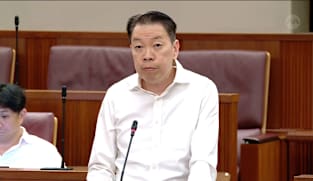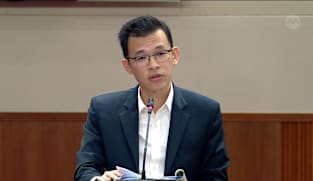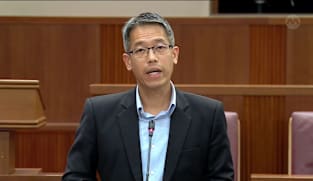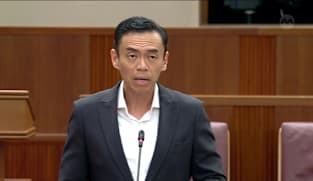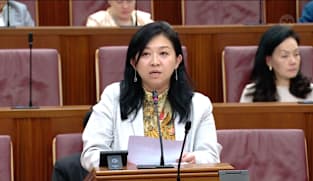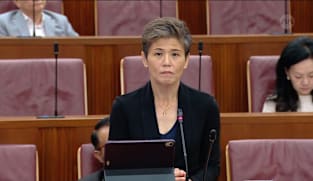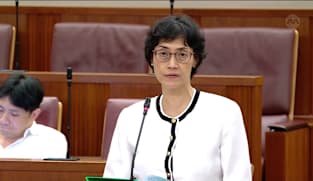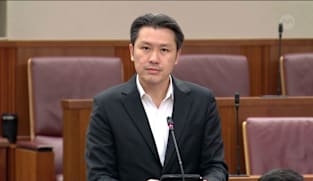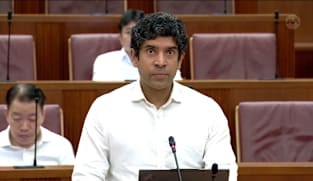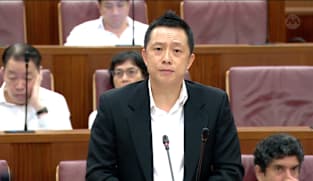Committee of Supply 2024 debate, Day 1: Chee Hong Tat on sustainability reporting and ease of transacting with Government agencies
The Government will introduce mandatory climate disclosures in a phased approach, starting with listed companies, followed by larger non-listed companies. From FY2025, all listed companies will have to prepare climate reporting based on local prescribed reporting standards, which are aligned to those of the International Sustainability Standards Board. From FY2027, non-listed companies with annual revenue of at least S$1 billion and total assets of at least S$500 million will be required to provide climate-related disclosures. Second Minister for Finance Chee Hong Tat, who announced this in Parliament on Wednesday (Feb 28), said some companies may have started climate reporting using different internationally recognised standards and frameworks. Such companies will have a three-year transitional period during which they will be exempted from the new requirements. Turning to efforts to make it easier for companies to transact with the Government, Mr Chee said they can tap on a new Tender Lite platform, which will have fewer and simpler conditions for tenders. The Ministry of Finance (MOF) will cut the number of contract conditions by about 20 per cent by streamlining the clauses, as well as share risks with businesses, while maintaining public accountability. Tender Lite will cover tenders of up to S$1 million for general goods and services. Around 90 per cent of Government contracts will be subject to simpler procurement conditions which will benefit small- and medium-sized enterprises (SMEs), said Mr Chee. He said MOF aims to level the playing field and remove unnecessary obstacles that prevent competitive and innovative suppliers, including small and new businesses, from participating in and winning Government contracts. Today, more than 80 per cent by number and about 40 per cent by value of Government procurement opportunities have been awarded to SMEs. The Government is also stepping up efforts to support large companies and SMEs through the green transition, including support to develop sustainability reporting and assurance competencies, said Mr Chee. As buyers, Government agencies are encouraging and recognising the development of green capabilities by enterprises through green procurement. From FY2024, the Government will set aside up to five per cent of evaluation points for sustainability-related considerations for larger construction and ICT tenders. Mr Chee said it will take time for businesses to adjust to the new sustainability considerations. The Government is phasing these into its tenders gradually, in consultation with the business community. Training programmes are also being developed to strengthen public officers’ capabilities on sustainability. Mr Chee said the Government is on track to achieve its target to include environmental sustainability considerations in all procurement by 2028, but further progress also depends on industry readiness and international developments.
The Government will introduce mandatory climate disclosures in a phased approach, starting with listed companies, followed by larger non-listed companies. From FY2025, all listed companies will have to prepare climate reporting based on local prescribed reporting standards, which are aligned to those of the International Sustainability Standards Board. From FY2027, non-listed companies with annual revenue of at least S$1 billion and total assets of at least S$500 million will be required to provide climate-related disclosures. Second Minister for Finance Chee Hong Tat, who announced this in Parliament on Wednesday (Feb 28), said some companies may have started climate reporting using different internationally recognised standards and frameworks. Such companies will have a three-year transitional period during which they will be exempted from the new requirements. Turning to efforts to make it easier for companies to transact with the Government, Mr Chee said they can tap on a new Tender Lite platform, which will have fewer and simpler conditions for tenders. The Ministry of Finance (MOF) will cut the number of contract conditions by about 20 per cent by streamlining the clauses, as well as share risks with businesses, while maintaining public accountability. Tender Lite will cover tenders of up to S$1 million for general goods and services. Around 90 per cent of Government contracts will be subject to simpler procurement conditions which will benefit small- and medium-sized enterprises (SMEs), said Mr Chee. He said MOF aims to level the playing field and remove unnecessary obstacles that prevent competitive and innovative suppliers, including small and new businesses, from participating in and winning Government contracts. Today, more than 80 per cent by number and about 40 per cent by value of Government procurement opportunities have been awarded to SMEs. The Government is also stepping up efforts to support large companies and SMEs through the green transition, including support to develop sustainability reporting and assurance competencies, said Mr Chee. As buyers, Government agencies are encouraging and recognising the development of green capabilities by enterprises through green procurement. From FY2024, the Government will set aside up to five per cent of evaluation points for sustainability-related considerations for larger construction and ICT tenders. Mr Chee said it will take time for businesses to adjust to the new sustainability considerations. The Government is phasing these into its tenders gradually, in consultation with the business community. Training programmes are also being developed to strengthen public officers’ capabilities on sustainability. Mr Chee said the Government is on track to achieve its target to include environmental sustainability considerations in all procurement by 2028, but further progress also depends on industry readiness and international developments.








